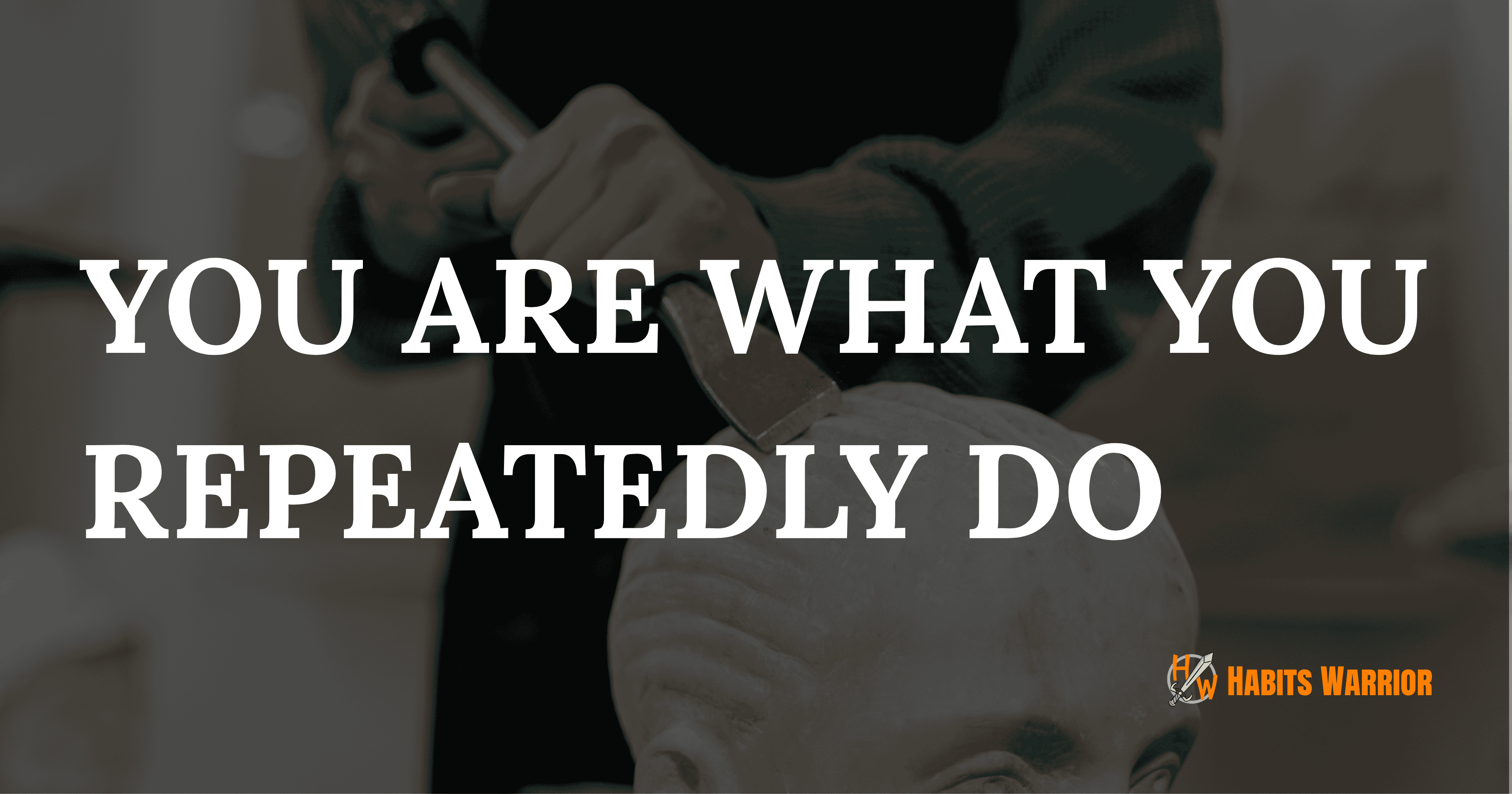
You Are What You Repeatedly Do: An Aristotelian Guide to Identity-Based Habits
For most of my life, my approach to self-improvement was entirely focused on outcomes. I would set goals like:
- "I want to lose 6kg."
- "I want to finish my thesis."
This framework always left me feeling like a failure. Every day I hadn't lost the 6kg was another day of not succeeding. My happiness was tied to a distant finish line. It wasn't until I connected modern psychology with ancient philosophy that I found a better way.
- Aristotle, in his work on ethics, famously concluded that character is built through action: "We are what we repeatedly do. Excellence, then, is not an act, but a habit." (Nicomachean Ethics, Book II).
While I knew the quote, it was James Clear's work in Atomic Habits that provided the modern lens I needed. He distinguishes between outcome-based goals and the far more effective Identity-Based Habits.
- Clear argues that the goal is not to "read a book" (outcome) but to "become a reader" (identity). The focus shifts from what you want to who you wish to become. (Atomic Habits, Chapter 2).
This reframing changed everything for me. I stopped saying "I want to lose weight" and started asking, "What would a healthy person do right now?" The answer wasn't some far-off goal; it was a small, immediate action: "go for a walk," or "drink a glass of water."
Each time I performed one of these small actions, it felt like casting a "vote" for my new identity. I wasn't waiting for the scale to tell me I was healthy; my actions were proving it to me in the present. In the Aristotelian sense, I was forging my identity in real-time.
The Habits Warrior Bridge:
This is the very soul of Habits Warrior. I built the "Warrior Stats" system specifically to be an identity tracker, not a goal tracker. I wanted to see tangible proof that my votes were being counted.
When you link your action—"Go to the gym"—to a piece of your desired identity—Strength—you are embodying this principle.
When the app registers Strength: 35 -> 36, it provides immediate, quantifiable evidence that you are actively becoming a stronger person. It's a feedback loop that rewards the process of becoming, not just the dream of having.
Sources:
- Aristotle. Nicomachean Ethics. (The specific quote is a popular summation of the concepts in Book II, particularly sections 1-4).
- Clear, James. Atomic Habits: An Easy & Proven Way to Build Good Habits & Break Bad Ones. (The concept of Outcome vs. Identity-Based Habits is a central theme, primarily introduced in Chapter 2).